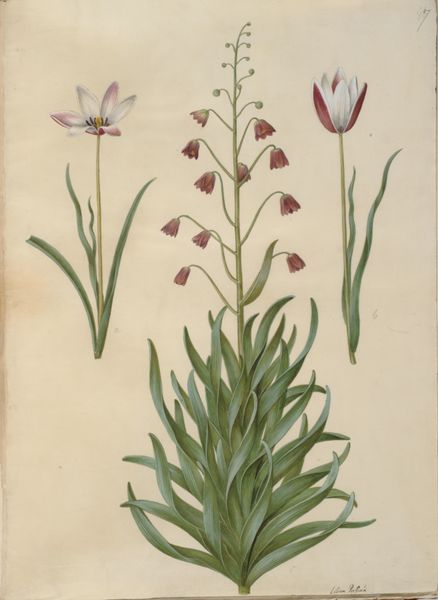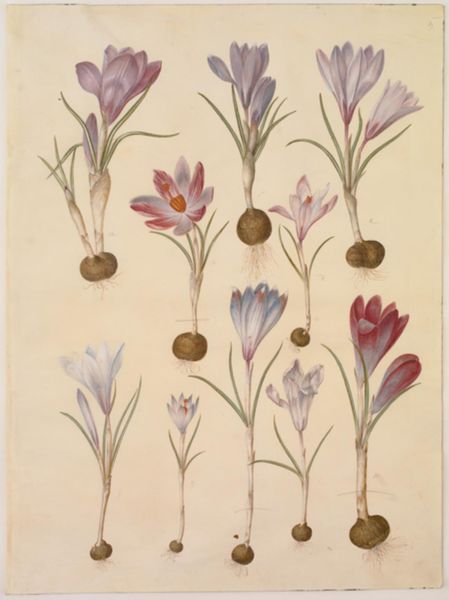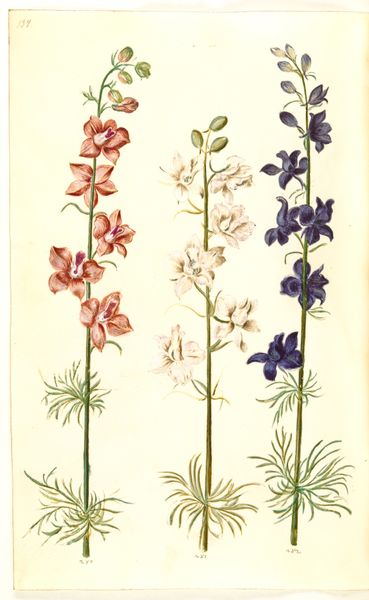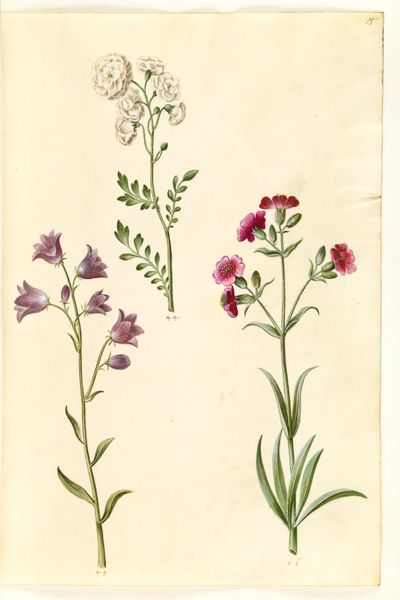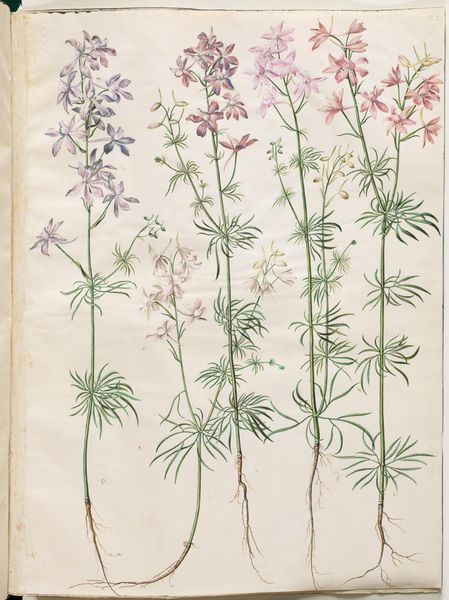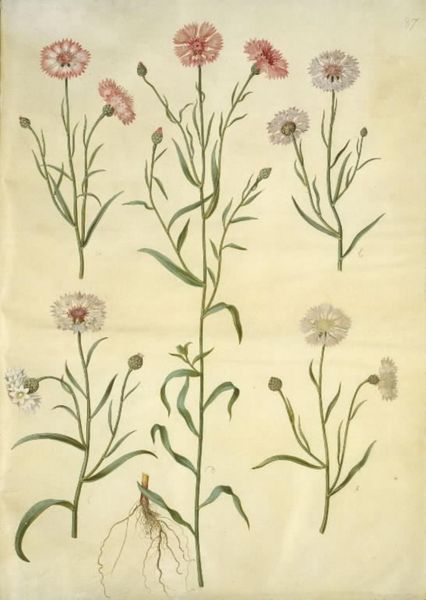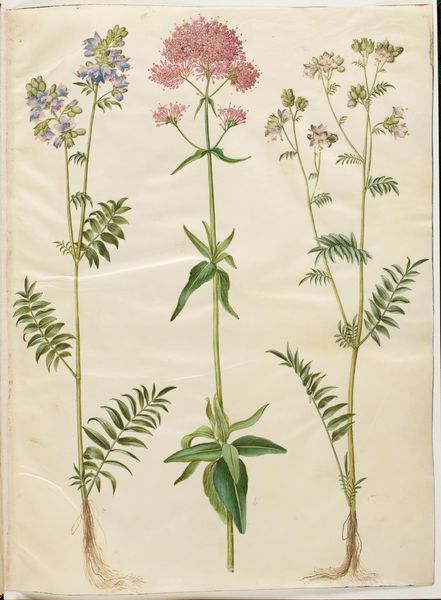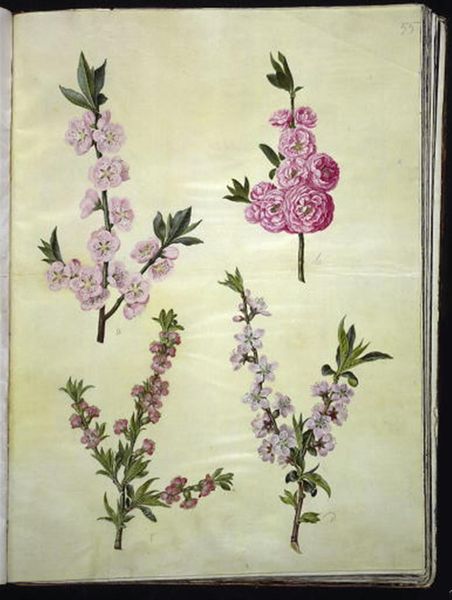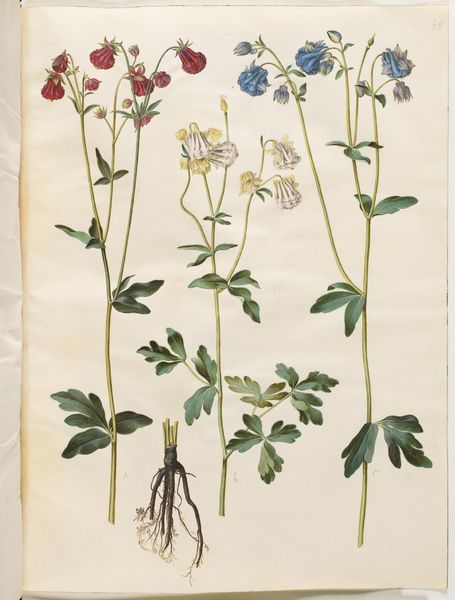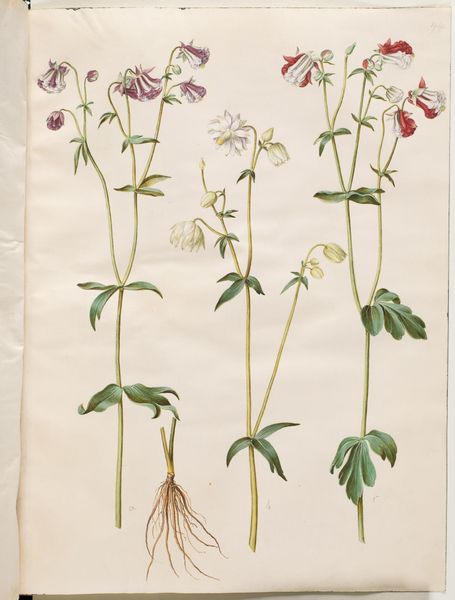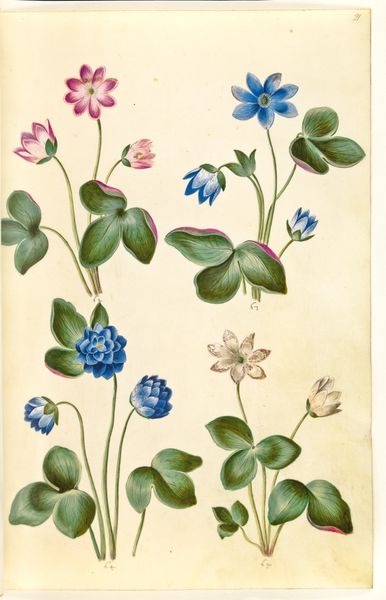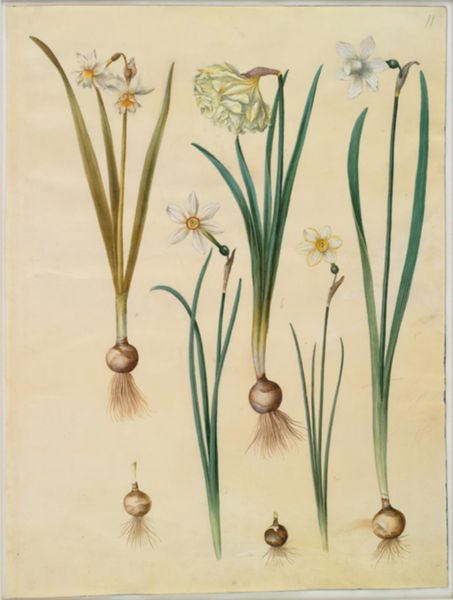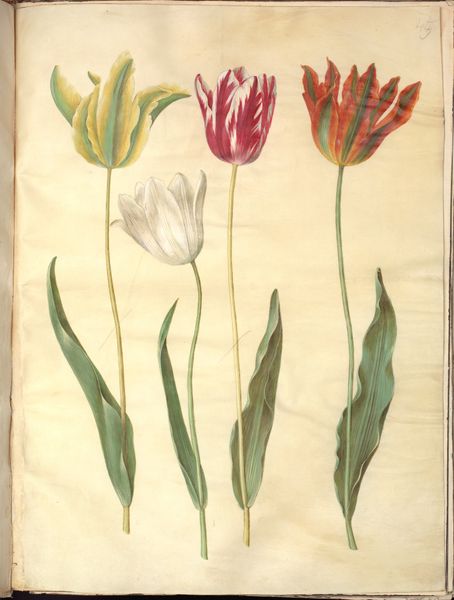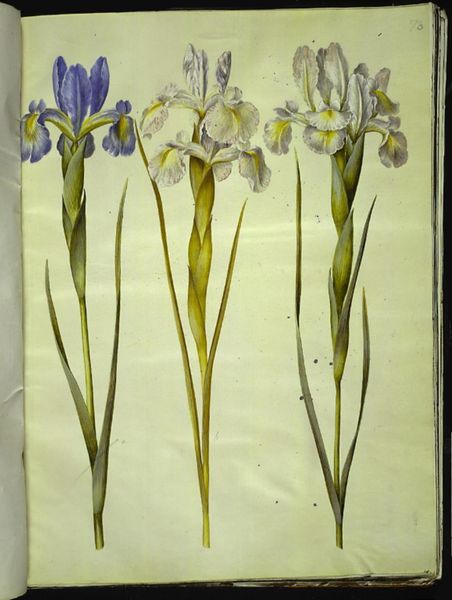
drawing, gouache
#
drawing
#
gouache
#
landscape
#
11_renaissance
Dimensions: 505 mm (height) x 385 mm (width) (bladmaal)
Editor: So, this is "Crocus vernus," a gouache and drawing piece by Hans Simon Holtzbecker, dating back to between 1649 and 1659. I'm struck by how delicate and detailed each individual flower is. What do you see in this work, and how does it connect to its time? Curator: I see a profound meditation on ephemerality and renewal. The crocus, a symbol of spring, speaks to rebirth, but rendered with such precision, it becomes almost scientific. The Renaissance witnessed a surge in botanical illustration; do you think that is it trying to freeze a moment, to capture and classify nature's fleeting beauty but also dominate nature by possessing the knowledge of this flower? Editor: That’s a thought-provoking point. It’s not just a pretty picture, it's like an attempt to understand and preserve. But wouldn’t capturing a landscape have the same scientific dominance? Curator: Perhaps, but consider that each flower is subtly different, even imperfect. The imperfections prevent total understanding; the differences among all the same spring flowers reminds one that total control is impossible. This is what brings humanity back into the fold, as only the memory and passing moment matters. Editor: So, even in what seems like a straightforward botanical study, there's an undercurrent of mortality and the limitations of human control. Fascinating! Curator: Indeed! I wonder, then, if Holtzbecker is hinting that the only possible control we have is creating cultural memory via the careful arrangement of symbols that become encoded by a culture over time. We have our control when others internalize symbols that we chose! Editor: This makes me think about how we use images of nature today. Still connected to the same ideas, even? Curator: Undoubtedly. Holtzbecker gives us a poignant look into the cyclical nature of existence and the stories we tell ourselves about nature to control its cultural identity. Editor: I will never see flower illustrations the same way. Thank you!
Comments
No comments
Be the first to comment and join the conversation on the ultimate creative platform.
